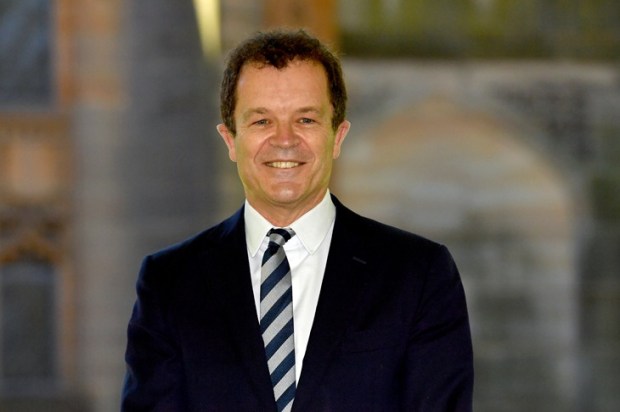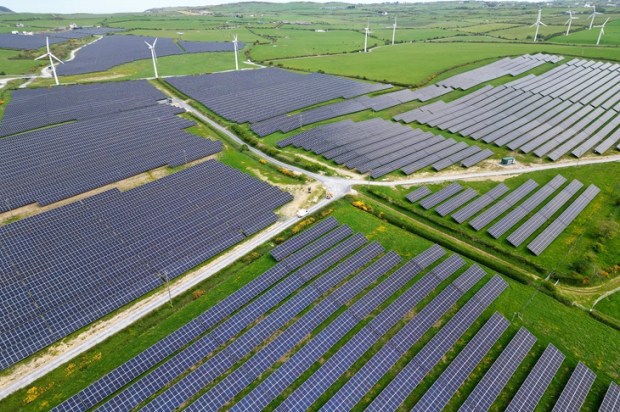There’s an old joke about divorces. Do you know why they’re so expensive? Because they’re worth it.
Elections are no different. Mr Albanese wants four-year fixed terms. Apparently, Mr Dutton used to want four-year terms but then he didn’t, and now he does again.
Four-year terms might make their job easier. It might also save us some $60 billion in the next two decades. But do voters really want the federal government to have four years to mess with us? Or is it worth $3 billion each year to make our politicians work harder for us?
Look at the UK with five-year terms. They’re in terminal decline. Some state governments are on four-year terms, but all they get to play with are stamp duty (which should have ended when the GST started), tolls, and motor vehicle registration to upset our wallets. Education and health, which are officially the responsibility of the states, are subject to the whims of the feds, despite them not directly providing a single school or hospital.
To put that in perspective, the federal government has budgeted $47.9 billion across the education portfolio in the current financial year. Total federal health funding is set to be some $141.1 billion in the same period. That’s $189 billion each year on portfolios for which the Commonwealth has no explicit constitutional responsibility.
Which means the feds can really do a number on us, just as they are now.
It all comes down to how much we value our democracy. Are we willing to give up $3 billion per year to enable peaceful revolutions?
Let’s look at it another way. We will spend $60 billion over the next 20 years to ensure federal governments are accountable to citizens every three years.
Meanwhile, our climate and energy policy spend (the Commonwealth has no explicit responsibility for this portfolio, either) is projected to exceed $40 billion over the next decade.
Which begs the question: What is more important, $3 billion per year on holding governments accountable to citizens, or $4 billion per year on endless virtue signalling?
The last three years have seen some of our worst own goals. Our living standards are going down the gurgler while the government and its cheer squad create false economies with taxpayers’ money.
Voters in places like the ACT and Victoria bear some of the responsibility.
Government handouts that blow out government budgets seem to be someone else’s problem. The result of the left’s long march through the institutions has provided economic fodder for elections. How 50 cent trips on public transport in places like Queensland won voters, where only a handful of city folk get to enjoy subsidised trains and buses, is bizarre. Folk in the regions are subsidising inner-city virtue signallers for what exactly? At least Queensland has only three-year terms.
The ACT has taken virtue-signalling to the next level. The ACT Labor-Greens coalition government outsources its virtue signalling by purchasing ‘renewable’ energy. The reality is that their electricity is often provided by coal-fired power stations. NSW regional towns with windfarms that dominate their horizon routinely suffer power outages to keep Canberrans happy about their green credentials. Yet none of this is ‘factored in’ to the external economic costs of the ACT’s energy policy.
Victoria, with its four-year fixed-term elections, is the basket case par excellence. Victorians keep voting for higher state debt that the rest of us have to fund. The Victorian Opposition has a lot to answer for, but let’s not go down that rabbit hole of next-level nonsense. The federal government is the main game and while we can cope with state and territory governments that do not match our economic, ideological, or philosophical preferences, a crappy federal government can destroy ordinary Australians as quick as look at them.
People forget that liberal democracy provides a deliberate choice between the government and the government in waiting. It may be imperfect, but when combined with free speech, it provides a non-violent outlet for citizens’ frustrations. In effect, liberal democracies enable regular, peaceful revolutions.
The main argument for four-year terms is that the government can spend more time on governing and less on campaigning. Three-year terms mean the first year is about reconfiguring the machinery of government (the departments and agencies and so on), the second year is implementing policy, and the third year is about campaigning for the next election. A fourth year would allow two years of policy rather than one. But it would also allow an incompetent government more time to mess things up.
The other major argument is that it is less expensive to run elections every four years rather than three.
The big question: What’s in it for voters?
Eugene McCarthy, a long-time Democratic representative, senator, and presidential candidate in the US, summed up the nature of the problem:
‘The only thing that saves us from the bureaucracy is its inefficiency. An efficient bureaucracy is the greatest threat to liberty.’
Imagine the Albanese government with another year to cement their big-spending, household-destroying economic plan. I don’t know about anyone else, but in my opinion, it’s time for a peaceful revolution. If governments want to stay in power, they should deliver what citizens want in the time they are given.
The same is true for those who want a leftist government. Three years is a handful, four years is a lifetime. Given the polarisation of our politics, we ought to be grateful for Section 28 of the Australian Constitution, which reads:
‘Every House of Representatives shall continue for three years from the first meeting of the House, and no longer, but may be sooner dissolved by the Governor-General.’
If our governments really suck, they can be ended sooner.
Four-year terms for members would mean that senators, instead of six-year terms, would have eight years. Imagine eight years for the likes of Lidia Thorpe, Fatima Payman, and David Shoebridge to strut their stuff. Thank God for peaceful revolutions via elections.
And thank God for the foresight of our forefathers. Such wisdom saves us from the tyranny that is threatening the UK. For all that is wrong with our politics, we are the lucky country when it comes to our unique blend of the Westminster and Washington systems.
And while a Newspoll survey conducted in March 2025 indicated 51 per cent of respondents supported extending the federal parliamentary term to four years, 37 per cent opposed the idea. Hardly a referendum-winning margin.
After the Voice failure, I don’t see any Prime Minister pushing that barrow for some time. In the meantime, our politicians will just have to work harder for the privilege of governing Australian citizens. Amen.
Dr Michael de Percy FRSA FCILT MRSN @FlaneurPolitiq is a political scientist and political commentator. He is a member of the Federal Parliamentary Press Gallery, Editor-in-Chief of the Journal of Telecommunications and the Digital Economy, Chairman of the ACT and Southern NSW Chapter of the Chartered Institute of Logistics and Transport, and a member of the Australian Nuclear Association. Michael is a graduate of the Royal Military College, Duntroon and was appointed to the College of Experts at the Australian Research Council in 2022. All opinions in this article are the author’s own.


























